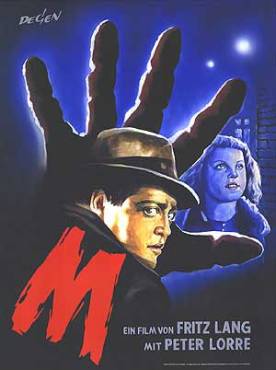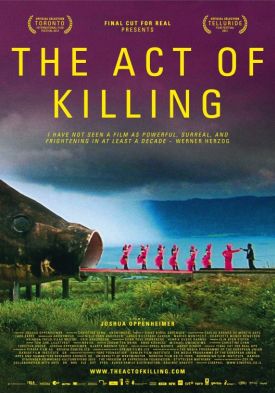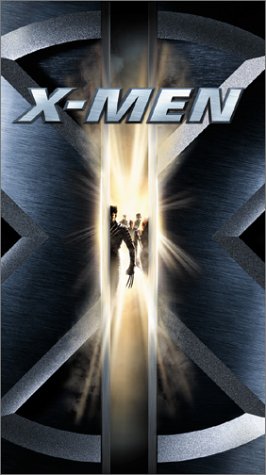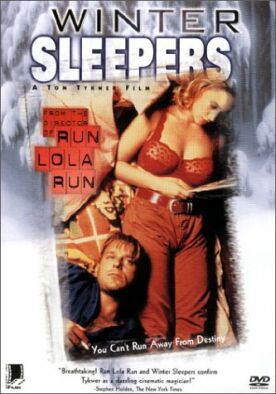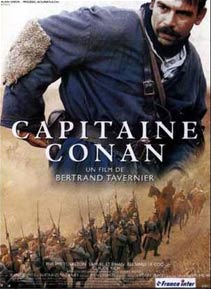M
M by Fritz Lang, first made in 1931, has now been reissued in a new and refurbished print and is a film which movie buffs all ought to rush out to see. The use of the camera and the visual imagery and composition in this story of what we should nowadays call a serial killer, based on a real life story, are astonishingly original and fresh-looking, and the drama itself raises all kinds of interesting questions. Chief among these is the central issue for modernism of personal responsibility versus determinism, either psychological or economic. In the film’s climactic scene we see Peter Lorre as the child killer, Hans Beckert, pleading for his life to a tribunal not of bourgeois justice but of his fellow criminals who have brought him to justice only because their own criminal lives have been made more difficult by the police dragnet designed to catch him.
The leader of the thieves and prostitutes, Schränker (Gustaf Grundgens) argues that Beckert’s behavior is “beyond the pale.” They are just “making a living” but “there is a gulf between him and us” and he “does not deserve to live.” Recognizing where his best hope lies, Beckert demands his rights and demands to be handed over to the police. The thieves just laugh at him. “We are all legal experts here,” they tell him sardonically. Schränker explains that if they give him up to the authorities, he will just plead insanity, go to a cushy institution at state expense and then escape or be released back into society to go on hurting kids. “You will be eliminated,” he tells him sternly.
Beckert then adopts a more philosophical argument. Yes, he says, he is different from them. But it is not because of the enormity of his crimes. It is because they are truly free to do good or ill. If they wanted to they could all get jobs and be solid citizens. Instead, they are just “a herd of lazy swine.” He, on the other hand, can’t help what he does. He is driven by a force within himself which he cannot escape. He can never remember his murders. He only knows about them from reading about them in the paper next day. He can’t stop himself. “Ich kann nicht!” A few of the thieves begin to feel some sympathy with his obvious emotion and the argument of his “defense attorney” that “no one can be punished unless he is responsible for his actions.” Ultimately, however, they conclude that this is all nothing but “the old story.” Schränker says that “anyone who admits to being a compulsive murderer should be snuffed out like a candle.”
They are all about to descend on him and tear him to pieces when the police arrive to carry him off to a conventional trial, the results of which are never revealed to us. Almost postmodern-style, the film ends with ends with the banality of one of the bereaved mothers saying “It won’t bring our children back; we must keep a better watch on our children.” But what is most exciting about the film is its compulsive watchability and the pathos with which, first, we are led to see the murder of a child (and this entirely without graphic details) and, second, the pursuit and capture of the murderer. And the disorientation of one’s moral faculties happens to the tune of an almost rollickingly funny depiction of life in Düsseldorf just before the Nazi takeover of Germany. Especially noteworthy is the smoky atmosphere as both cops and thieves puff away like mad on anything that burns. Even in this the film looks astonishingly up to date.
Discover more from James Bowman
Subscribe to get the latest posts to your email.

